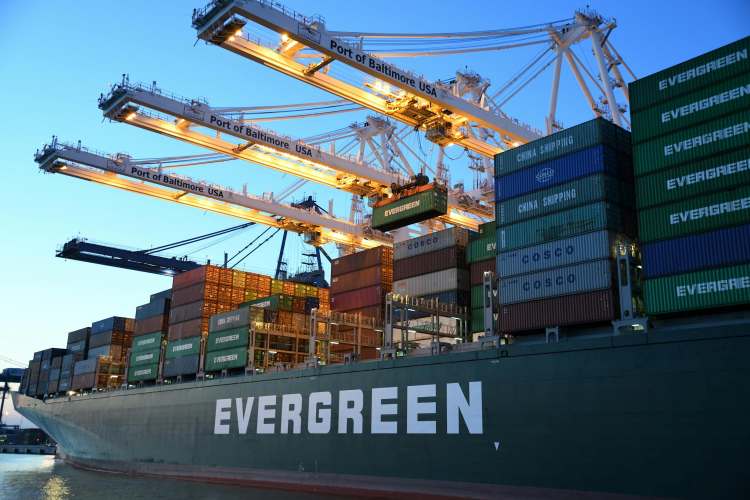
By dressing protectionism in patriotic finery and christening it Liberation Day, President Donald Trump has, once again, traded economic logic for electoral theatrics. On April 2, Trump is set to announce what may be the most disruptive move in decades of global trade policy: reciprocal tariffs on a wide range of American imports, allegedly to combat unfair trade practices.
It is an audacious misstep. These tariffs, far from liberating American workers, will constrict the veins of global commerce, hurt the very people they claim to protect, and push the US economy towards inflation, uncertainty, and slower growth. And make no mistake, the world economy will also suffer.
READ I Rupee braces for another year of global disruption
Everyone benefits from global trade
Let us be clear — trade deficits are not theft. They are not a scoreboard where the country that exports more wins. The real winners of global trade are consumers and businesses, who benefit from lower costs and efficient supply chains. Trump’s rhetoric that America has been ripped off for decades is not just simplistic, it is dangerously misleading. The $1.2 trillion goods trade deficit in 2024 that he cites reflects America’s consumption strength and the dollar’s reserve currency status — not a loss in a zero-sum game.
The idea of levying the same import duties as other countries impose on US goods might sound fair at a campaign rally, but try implementing that across 2.5 million tariff lines and 150 trading partners. It would require bureaucratic gymnastics so complex and resource-intensive that businesses would be paralysed by regulatory confusion. And for what? A fleeting illusion of fairness that punishes American firms more than their foreign competitors.
Liberation Day tariffs threat to US economy
Consider this: over one-fourth of all US imports are parts, components, and raw materials. Tariff them, and you raise input costs for American manufacturers. Ford has already warned that a 25% tariff on imports from Mexico and Canada, two of its biggest supply partners, would make the US industry bleed. These tariffs are not surgical strikes; they are economic carpet bombing.

The US Chamber of Commerce, Goldman Sachs, and JPMorgan have all warned of a slowdown. Goldman estimates that even a modest 5 percentage point tariff hike could shave 1–2% off S&P 500 earnings growth. The S&P 500 has already declined by 9% since mid-February, and the Magnificent Seven tech stocks have dropped over 20%. Confidence, both business and consumer, is sinking — consumer sentiment hit a four-year low in March. These are not abstractions; they are indicators of real pain.
Federal Reserve officials admit that this is a huge fall in confidence since the Covid outbreak. The uncertainty, not just the tariffs themselves, is wreaking havoc on planning, pricing, and production. CEOs, particularly in the retail sector, are already preparing to pass on higher costs to consumers. So much for Trump’s promise to bring down prices. His tariffs are a tax on Americans, pure and simple.
Global economy facing big trouble
The impact abroad is no less severe. If Trump proceeds with a 20% blanket tariff, the United Kingdom’s GDP could fall by up to 0.6% this year and 1% next year. For an economy already teetering under fiscal constraints, this would be a hammer blow. The EU, Canada, Mexico, and China, America’s largest trading partners, are already pledging retaliation. This is not policy. This is economic brinkmanship masquerading as populist resolve.
What makes Trump’s tariff play especially cynical is its performative nature. This is not about correcting trade imbalances or protecting jobs. It is about politics. This is not politics as policy, but politics as war by other means. Trump uses tariffs to reward loyalty and punish dissent — whether it is allies like the UK being pushed to lift digital taxes on Big Tech, or Elon Musk’s Tesla eyeing carve-outs for EV parts. Trade policy has been reduced to a lever for fealty and donor gratification.
The World Trade Organisation is already weakened. Multilateralism has been hollowed out by unilateralism dressed up as nationalism. Trump’s Liberation Day accelerates this erosion. By bypassing negotiated treaties and pushing country-by-country deals, he invites a race to the bottom.
And there lies the gravest danger. Today’s global economy is a vast, interconnected web. Supply chains span continents. A textile made in Indonesia, dyed in Vietnam, and stitched in Mexico may be sold at a Walmart in Kansas. A car assembled in Michigan may run on components from Canada, Japan, and Germany. If each link is tariffed, the entire chain weakens, and the consumer pays the price.
Let us not be swayed by slogans. Liberation Day will not liberate workers, it will trap them in a higher-cost economy with fewer opportunities. The promise of revived manufacturing is illusory. Jobs lost to automation or shifted to services will not return with tariffs. Instead, we risk an inflationary spiral, collapsing business confidence, and retaliatory wars that drag the global economy into recession.
In short, Trump’s reciprocal tariffs are not a trade strategy. They are a wrecking ball aimed at the architecture of global commerce. If allowed to proceed unchecked, they will harm not just America, but the world.
As Warren Buffett once said, “You only find out who is swimming naked when the tide goes out.” Trump’s tariff plan, if implemented, will leave America standing alone — without allies, without certainty, and certainly without the growth he claims to champion.
